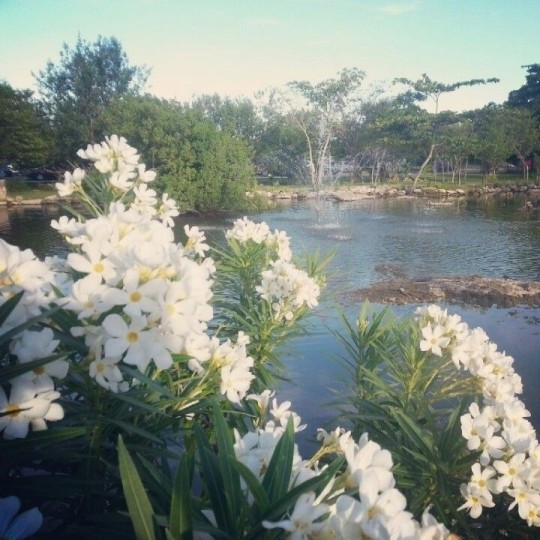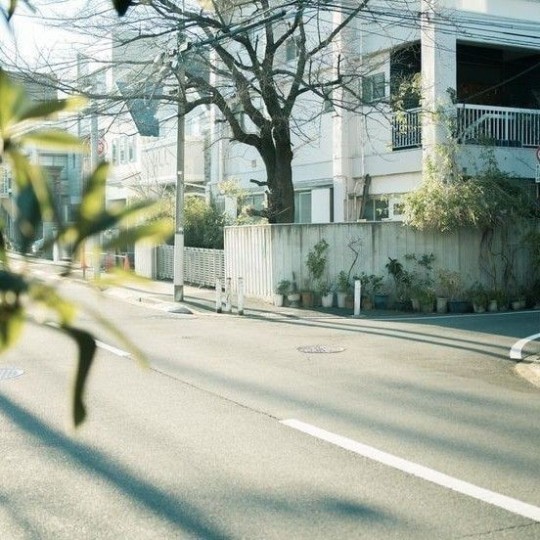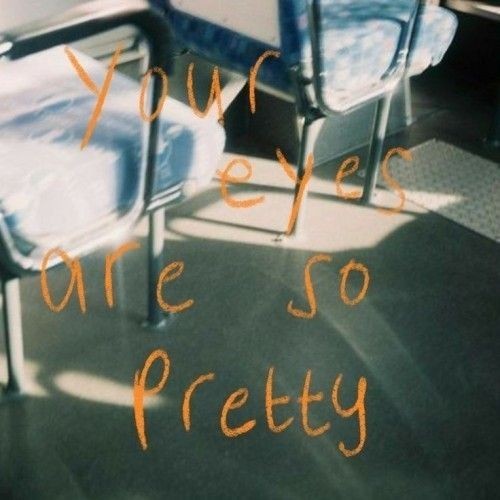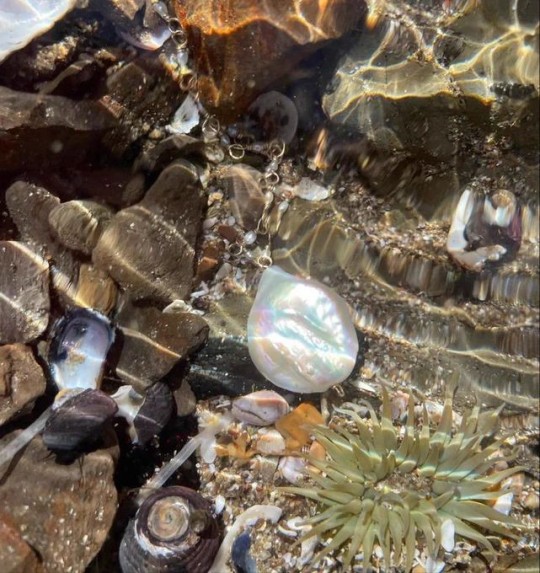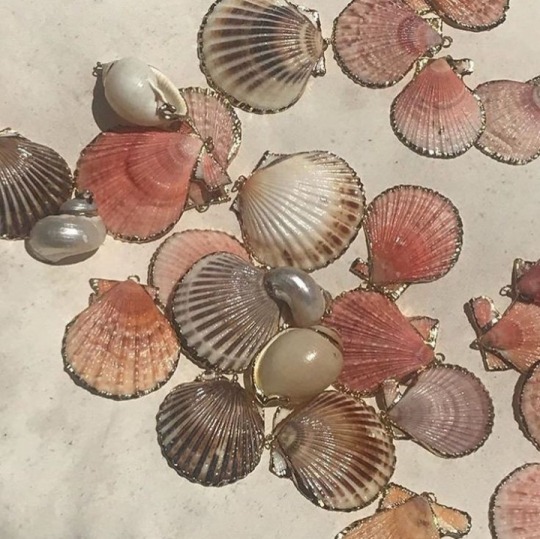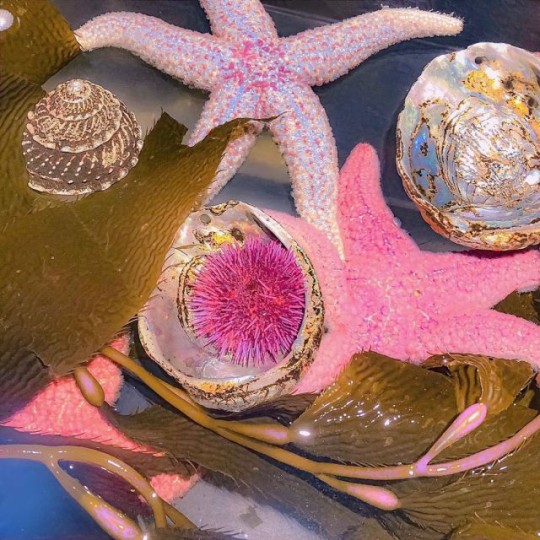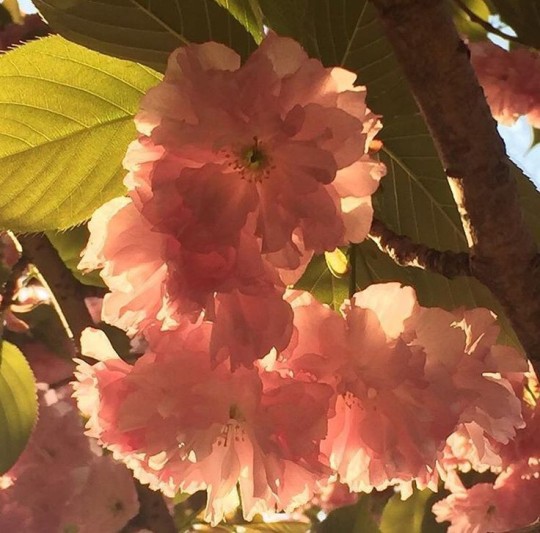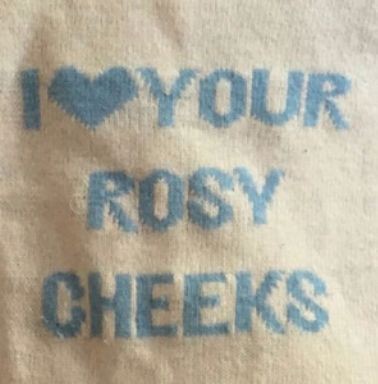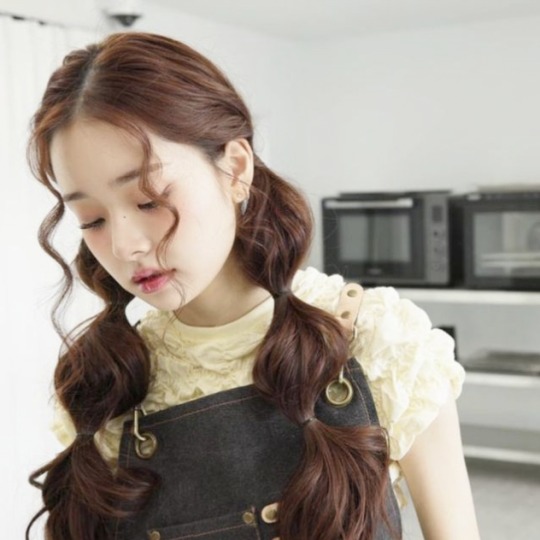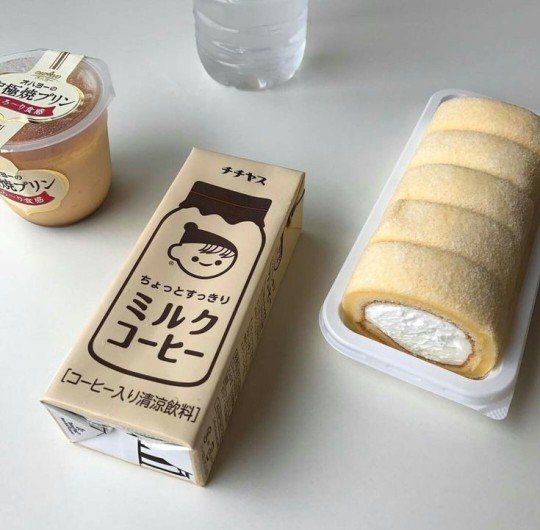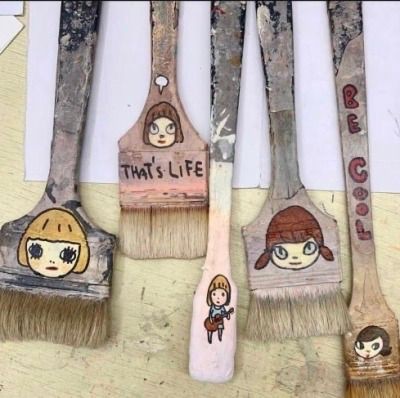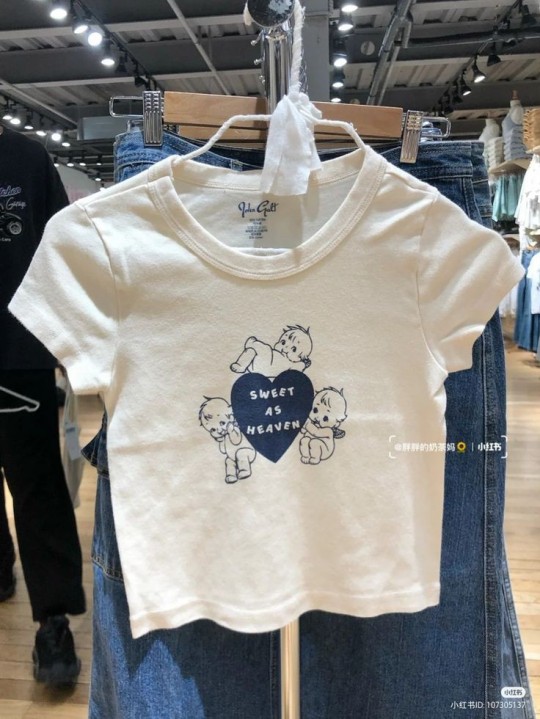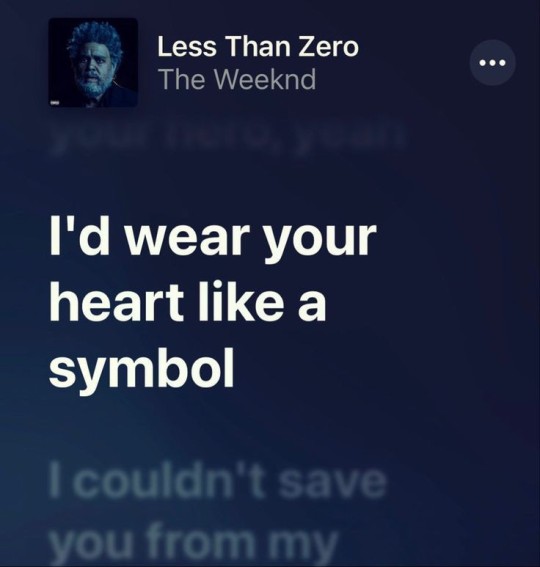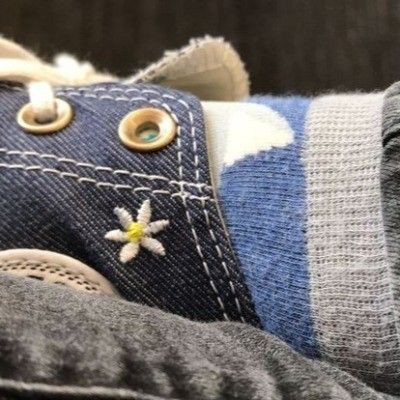Text
NG
Ng - is used as a marker to indicate possession, to mark the direct object of a verb, or to show the topic or subject of a sentence. It is used in linking phrases and prepositional phrases.
example:
- Damit ng kapatid ko.
- Bahay ng kapitbahay.
Other usages:
Direct object.
- Huni ng ibon.
Used for time and date.
- Alas tres ng hapon.
- Ika-7 ng mayo.
Answer to the question 'ano'.
- Gusto ko ang halimuyak ng sampaguita.
Many tagalog speakers, even native speakers, often confuse it with the other marker NANG and they use those two markers interchangeably in written contexts. It is really hard to differentiate them because they really sound the same.
1 note
·
View note
Text
Nang
Nang- used as a conjunction or adverb to indicate how an action is done, to express manner, or to provide additional information about the verb. It is commonly used with verbs in the past tense.
example:
- Tumakbo siya nang matulin.
- Naglakad siya nang naka-paa.
Other usages:
1. Repeated action.
Gala nang gala.
2. Replacement for 'para', 'noong', at 'upang'.
Para - Maaga akong matutulog, nang magising ako nang maaga bukas.
Noong - Nang makita ko siya kanina.
Upang - Aalis ako nang maaga, nang hindi ako ma-late sa trabaho.
3. Answer to the question 'paano'.
Nakalabas ako nang walang kahirap-hirap.
Many tagalog speakers, even native speakers, often confuse it with the other marker NG and they use those two markers interchangeably in written contexts. It is really hard to differentiate them because they really sound the same.
1 note
·
View note
Text
Korean Slang을 좀치네요~
A casual phrase that was been around for a while
뭐뭐.. “좀 하다”
“Done a bit of this / Dabbled in / Done this a bit in my day”
Simply put, it is a playful way of saying someone has done something quite a bit or is pretty good at something. Which is why it’s generally used with the ~네(요) or 거든(요) grammar endings.
For example
“야 너 롤 해??”
“Do you play LoL (League of Legends)?”
“응, 나 좀 하지”
“Yeah, I play a bit”
But this has changed from 하다 (To do) to 치다 (To play a sport or instrument) but still can be used in everyday context.
So instead of saying
“너 베이킹 잘 하네!”
“You’re pretty good at baking!”
You can say
“와아, 이 빵 잘 구웠네. 너 좀 치네”
“Woah, you baked this bread so well. Guess you’re pretty good at baking”
As always, it’s not a direct translation, but you get the gist of it.
이제 구독자분들도 한국어를 좀 치시네요~
(Now you (the readers) know a bit of Korean too)
225 notes
·
View notes
Text
Korean Slang [UPDATED]
I logged into tumblr for the first time in like YEARS and found out that I promised an updated Korean slang post 2 years ago😅
갓생 (gat-saeng) ➡️ "that girl" lifestyle, someone who's productive
고인물 (go-in-mul) ➡️ someone who's played a game for a long time
꾸안꾸 (kku-an-kku)➡️ no-makeup makeup
누물보(nu-mul-bo)➡️ "who asked?"
띵언 (dding-eon)➡️ a good quote
머선129 (meo-sun-il-e-gu) ➡️ what's going on
무물보 (mu-mul-bo)➡️ ask me anything
반모(ban-mo)➡️ banmal mode (not use honorifics)
성덕(sung-deok)➡️ successful fan (a fan whose met their idol)
식집사 (sik-jip-sa)➡️ plant mom/dad
스불재(seu-bul-je)➡️ self-inflicted disaster
알잘딱깔센(al-jal-ttak-kkal-sen)➡️ doing something well/perfectly on your own
어쩔티비 (eo-jjeol-tee-bi)➡️ "what are you gonna do"
억텐 (eok-ten)➡️ (I have a lot to say but I won’t say it)
워라벨(wo-la-bell) ➡️ work life balance
자만추 (ja-man-chu)➡️ (hurts my heart)
케바케 (ke-ba-ke)➡️ case by case
아아 (ah-ah)➡️ ice americano
주불(ju-bul)➡️ tell me your address
킹받네(king-bat-ne)➡️ something/someone is annoying
411 notes
·
View notes
Text
𝗹𝗶𝗹_𝗾𝘁
⋆ 𓆩♡𓆪 ⋆ 𓆩☆𓆪 ⋆
‧₊˚✧♡✧˚₊‧
➥⵿꒷꒦ᤱ᪼␥᩠ᤱ˚༘·𖧵ฺฺ݊ ።❍⃕⃟᎒⃟̀ ི⿻˟⃟🖤̻̻͓͓⊹͢₊꧇❁〬‧໋݊𖠵ฺ۟·⸼۪❀˟̫ː₊̇°˟̫ː
𔓘 𑁍 𖡎 ֍ 𖣠 𖦹
❁
𑑛/ᐠ . ̫ .マฅᰔ
(*ฅ˙ ˘ ˙ฅ*)
(𖦸▿𖦸)*・
ᰔ꒰ ⬤⤙⬤ ꒱ᰔ
▒▒⃝▒⃝▒⃝▒⃝▒⃝▒
⿻˟⃟🖤̻̻͓͓
❨စૄစ❩
૮ • ﻌ - ა
₍ᐢ. ֑ .ᐢ₎
₍ . ̫ .₎
₍ . ˬ .₎ 𖥧 ˒˒.
⸜( ˙꒳˙ )⸝.*☆
꒰ o̴̶̷̥᷄ ̫o̴̶̷̥᷅꒱ . ♡
(◍╹ꇴ╹◍)つ─━━━━━✮
(˃▿˂๑)
( ˃ 𝅒 ˂)៸
ꕤ*𓈒𖧷 ⁺.
(ᐡᴗ ̫ᴗᐡ)
( ֊ ̫֊ )
。:+* ゚ ゜゚ *+:。:+* ゚ ゜゚ *+:。
(˙꒳˙ก̀)
(•᎑•)✩ ͙˚˖
(ꐦ •̀~•́)
( ⸝⸝⸝⁰⃚⃙̴ ༝ ⁰⃚⃙̴ )
૮꒰ ᵕ ༝ ᵕ ꒱ა
⋆⁺₊⋆꒰⑅ᵒ̴̷͈ ᵕ ᵒ̴̷͈⑅꒱⋆⁺₊⋆
₍ᵔ. ˛ .ᵔ₎
‹𝟹
❉。◌ ◦۪۪̥.
⁕ ◦۪۪̥ .*̊ ᛫ ִֶָ
·⋆᛫ᛜ:᛭:ᛜ᛫⋆·
˓ ˖ ࣪ ִֶָ ⸰ 𖥔 ͙ࣳ⭒
(◉𝅒◉)
ʕ⏑-⏑ʔ
𒀱ꪳ
✫✪✫✪✫✪✫
𒅒
𒈒
๖ۣ•҉ههههه
❥»⋆
૮₍ ˶• ˔ •˶ ₎ა
₍ᐢ˶• ˕ •˶ᐢ₎
ꜛ ꜜ ͎⭏⇢⋰
꒰❛ั ⩊ ❛ั ꒱
𔘓𓂃 ִֶָ
(ˊ· ⩊ ·ˋ)◦۪۪̥.
( ◕◡◕)⃗ ·ִֶָ̩۪۪۪⭒͙
ະ⁕ ִֶָ𝅅✴︎
( ˙ ꒫ ˙ )
(⁎•ᴗ•⁎)
( ・᷄ ֊ ・᷅ )
꒰꒰ 𐂐*⋆.(๑•𝅒•๑).⋆*𐂐 ꒱꒱
ฅ₍՞•ﻌ•՞₎ฅ
₍ᐢ · ̫ · ᐢ₎
꒰◡̎꒱
૮₍ ˆ ﻌ ˆ ₎ა
(◠⩊◠)
( ⁰ ⩊ ⁰)*ִֶָ۪۪۪̊⭒·̩͙⸰ ͙ࣳ
͙ ⭒͙ ⭒͙͙ ⭒͙͙͙ ⭒͙͙͙͙ ⭒͙͙͙ ⭒͙͙ ⭒͙
ฅ(• ﻌ •)ฅ
ꪔ̤̥ ꪔ̤̮ ꪔ̤̫
꒰•̤ ˕ •̤*꒱
ʚ₍ ᐢ. ̫.ᐢ ₎ɞ
𓏬 ⋮ 𓏬 ⋮ 𓏬 ⋮ 𓏬 ⋮ 𓏬
(˶ҩᆺҩ˶)
( ˙ ^ ˙ )ゝ
(。•ᴗ•。)𖤐´-
( -◞ - )
( ⋅֊⋅ )
ദിˆᵕˆ)
◡̎𔓘
꒰ີ˶• ˔ •˶꒱ ິ
ꔬ(๑ ˆ ▿ ˆ)꜆ ܸ
( ·̑ ⩊ ·̑)
₍ᵔ・•・ᵔ₎
(்ͦ ⩊ ்ͦ)
( ˃́ ⩊ ˂̀ )
(。ˆ ꈊ͒ ˆ。)
₍ᵔ · ⩊ · ᵔ₎
(⁎˃𖧉˂⁎)
ҩ༚̮ҩ
˓˓ (̨̡⁰̛꒳⁰̛*)̧̢ ˒˒
(⬮ᆺ⬮ᶹ)。
꒰ི𖧹 ⩊ 𖧹ྀ꒱
(⩌ᯖ⩌ ᶹ)◞
◟⁽ˆᵕˆ ⁾⸜
˓˓ (̨̡› 𝅒 ‹ )̧̢ ˒˒
ˈᵕˈ
૮₍´。❛ั ꒳ ❛ั 。`₎ა
(𐐫⩊𐐫)
(。 ' •̫̮ ' 。)
(• . ̫• )
(ᴖᯖᴖᶹ)
ㅤ ⃘♡⃘ິ ㅤ᳤ ♡᳣̶ ㅤ⁰₀ᰱ︨♡ᰱ︧₀⁰ㅤ
(ᴗ͈ ̫ᴗ͈)
◝(≍ꔸ≍)◜
.•*ㅤ᳤ ♡᳣̶ ㅤ*•.
(,,ᴗ ̫ᴗ,,)
(മ𖧉⌒)
₍ᵔ𐐫ᆺ𐐫ᵔ₎
( ≻ ⩊ ≺ )
⋆ ˚。⋆˚⸜(。்॑ͦᗜ்॑ͦ。)⸝ ˚⋆。˚ ⋆
ʕꔸﻌꔸʔ
o̴̶̷᷄ ̫ o̴̶̷᷅
(˶• ▿ •˶)
( › ⩊ ‹ ) ♡*
(⚈ ⩊ ⚈)
꒰⁕⁰̛ꈊ͒⁰̛꒱
(𓏗˓˳𓏗)ᵎᵎ
(⚈𖧉⚈)~❤︎
♡(っ*ᵔ꒳ᵔ)ˆᵕˆ*c)♡
⠀̆̎
⠀̐̈
₍ᵔ • ﻌ - ᵔ₎
(˃̣̣̥᷄ ̯ ˂̣̣̥᷅ ◦)
( ˈ ⍛ ˈ )
꒰˵•꘍•˵꒱
꒰˶• ᤱ •˶꒱
૮₍。⬤ ꞈ ⬤。₎ა
..̯
ପ꒰ ˙ - ˙ ꒱◌.*
‧º·( ˃̣̣̥ ˓˳ ˂̣̣̥ )‧º·˚
ᕙ(•̀‸•́‶)ᕗ
(* ⁰̷̴͈ ⩊ ⁰̷̴͈)
( -᷅ ⤙ -᷄)
ᶠᶸᶜᵏᵧₒᵤ
(˙ᴖ˙ก̀)
꒰。ᵔꈊᵔ。꒱
꒰𐐃ᯖ𐐃꒱
( ⋅ ̯⋅ )
˳⋆( 。• ༝ • 。 )⭒ִֶָ
(ᯫ⏑᳐ .̫⏑᳐)
꒰。◠ ꎴ ◠꒱𔘓◦ִֶָ
₍ᵔ˶• ⸼ •˶ᵔ₎
˳⋆ ฅ( ˙ ꒳ ˙ ฅ)⭒ ִֶָ
ִֶָ ˑ ˖ * ⸼ 𐀣 ⸼ * ˖ ˑ ˳
*.∗̥⁺(⌒‿⌒)*.∗̥⁺
꒰。𖧹 𖧉 𖧹꒱
ˑ ˖ * 𓈒(ʚ̴̶̷̆ˬʚ̴̶̷̆)⸼ * ˖ ˑ
ฅ( ⋅ ᆺ ⋅ ฅ)
・:*(ᤱő⩊őᤱ)*:・
( ȏзȏ)
꒰ʚ̴̶̷ᆺʚ̴̶̷ᶹ꒱ ₎。
˳ . ᤱ⭒ᤱ . ˳
₍̫̫ᵔ ˲ ̫ ˱ ᵔ₎ ̫̫
( ˙◞˙ )
ʕ̢·˔·Ɂ̡̣
ฅ( ˙ ꒳ ˙ ฅ)⋆⁺ ๋₊𝅄
ˁ ˙ꈊ͒˙ ˀ
⁽˙⁸˙⁾₍.₈.₎
(ᐡ - ﻌ - ᐡ)
( ᴗ͈ ̫ᴗ͈)◞
( ›⤙‹ )
.·˖*𖠌*˖·.
ꔬ(͒ ꜆ ܸ ⁰́꒳⁰̀ )͒
ฅ(・¨ U)
(* -˔-)
ˁ ˙ ꒳ ˙ ˀฅ
໒꒰՞ ܸ. .ܸ՞꒱ა
(. ̫ .*)
(͒ °꒫ᑦ゙ )͒
(৹˙꒳˙ฅ)
♡̤̮˚
꒰ʚ̴̶̷̆⩊ʚ̴̶̷̆꒱
(´. ̫ .`)
❤︎(⃔ •ᆺ•。)⃕↝
( 𖧹∘̬𖧹)
.˖٭(● ᎑ ●)٭˖.
· ᴗ̵ ·
₍.¸.₎
꜀₍. ̫.₎꜆
'᎑'
ฅ(• ˕ • ฅ)↝♡
꒰◕ฺ ̫ ◕ฺᶹ꒱。
( ˘¬˘ )
( ´・▿・` )
꒰。• ᎑ •꒱*✩
(-.- ᶹ)˞
꒰*்꒳்*꒱
૮(。・ﻌ・)ა͙ ࣳ ⸰ֺ⭑˖
(ᯫ⏑᳐ ̫⏑᳐ᯫ)
˳ ִֶָ ˳ ִֶָ ˳ ִֶָ ˳ ִֶָ ˳
₍. ̫.₎
ー( ˙𝅒˙ )ー( ˙᎑˙ )ー( ˙⩊˙ )ー
(๑● ▿ ●๑)
*。.(♥ᵒ꒳ᵒ*)人(*˙꒳˙♥).。*
(..-⩊-..)
(。・▾・)
(•𝅒•)♡
(๑ơ ﻌ ơ)♡
(ᐡ-ܫ•ᐡ)
(◔⩊◔ )
( ິ◕ ˕ ◕ )ິ
(๑・ᆺ・๑)✬ ‧ ₊ * 𓂂 .
(0ᴗ0)
(ᐡ - . - ᐡ)
(≍⩊≍)
( ໊੭˃̶͈ꀧ˂̶͈)੭
(´・ ˒̫̮ ・)
(˶⚈ ̫⚈˶)
(*Ơ ̫ Ơ*)⚝ˎˊ˗
꒰⁕⁰̛ ˒̫̮ ⁰̛꒱
⋆⁺₊⋆꒰⑅ᵒ̴̷͈ ᵕ ᵒ̴̷͈⑅꒱⋆⁺₊⋆
(ᐡᴗ ̫ᴗᐡ)
( ˃ 𝅒 ˂)៸
꒰ o̴̶̷̥᷄ ̫o̴̶̷̥᷅꒱ . ♡
( ˙ ꒫ ˙ )
( -◞ - )
𓏬 ⋮ 𓏬 ⋮ 𓏬 ⋮ 𓏬 ⋮ 𓏬
ʕ⏑-⏑ʔ
(◉𝅒◉)
𖥧 ˒˒.̤
⿻˟⃟🖤̻̻͓͓
( ˙▿˙)(˙▾˙)(˙▿˙ )
ּ ᩚ. ⃟⃟⊹ᝰ
𔘓⃗ ·ִֶָ̩۪۪۪⭒͙
ˑ ˖ * 𓈒(ʚ̴̶̷̆ˬʚ̴̶̷̆)⸼ * ˖ ˑ
(˵ᵕ̴᷄ ᗜ ᵕ̴᷅˵)
ִֶָ ۪۪̥. ִֶָ◦۪۪̥.⃗ ·ִֶָ̩۪۪۪⭒͙
(-.-)...
ᑦ(⁎◕ ˕ ◕)ᐣ
*゚✲ฺ ٩(* ˙ ˘ ˙ *)۶✲゚ฺ*
₍ᐢ._.ᐢ₎
(࿁˙꒳˙ )ꪳ ゙̯
( • 𝅒 •)♡
*.(๓˚ ˘ ˚๓).*
( ˃ᴗ̵˂ )
ᰔ𐅼(◕ ▿ ◕ )
₍ᵔ •ܫ• ᵔ₎𔘓
𐅼‧✶𔕱𔖄𔕱✶‧𐅼
₍̫̫ٛ ˲ ̭˱ٛ ₎ ̫̫
₍ᵔ. ִ.ᵔ₎
◡̈
◝(° ꒳ °*)◜
( ֦ơ⩊ơ֦ )
(𐐫⩊𐐫)
(ꄱ⩊ꄱ)
𓆩❤︎𓆪
̤̮ ̤̫
( ⌒⤙⌒ )
( ợ ⩊ ợ)ᰔ
꒰❛ั𖧉❛ั。
⸼۪̆̎
₍ˆ꜆ . ̫.ˆ₎꜆
( •͙ 𖧉 •͙ )
┈‧⁺̣˚̣̣*̣̩⋆̩·̩̩୨˚̣̣̣̣͙୧·̩̩⋆̩*̣̩˚̣̣⁺̣‧┈
𔓕 𔒴 𔓘
▩⃕͜ꦿ૰→.・*・⭏
。۪۪۫۫⤨
𔓘 𑁍₍ᐢ. ִֶָ .ᐢ₎𑁍 𔓘
❍⃕⃟᎒⃟̀ ི✩
・ ༝ ⋆ ⑅ ▸◂ ⑅ ⋆ ༝ ・
♡̩͙
✫ᝰ
▒▒⃝▒⃝▒⃝▒⃝▒⃝▒▒
₊ ·˚₊˚· ₊
( ⬯⩊⬯)༝﹡˖˟₊⋆‧*̊.+•₊ .̩͙
‧⁺ ⊹˚.⋆o(ᴗ͈ˬᴗ͈)o‧⁺ ⊹˚.⋆
꒰ 𐐫⩊𐐫꒱⋆ . + • ₊ 。 .
。 ༝ ᚼ( ᵕ͙ ⩊ ᵕ͙ )ᚼ ༝ 。
૮꒰˵˙ ᵔ ˙˵꒱ა
꒰ີമܫമ꒱ ິ
៸៸ ˚̩̥̩̥ 。・゚• ₊⋆ﷻ
( ·︵· )
٩꒰˙ ˘ ˙ ꒱۶~♡
ະ̽▹꒰๑മ⩊മ꒱⊹ ִֶָ
·᛫⋆ʕ ̳• ⩊ • ̳ʔ⋆᛫·
ᢄ 𑊃 ⩊ 𑊃 ᢃ
꒰。⬤꘍⬤꒱
(⭒• ᴗ •⭒)
⚞(⬮⩊⬮)⚟
( ≥ ⩊ ≤ )ᰔ ࿔
(𐐫⩊𐐫)⁕ ۪۪̥᛫ ִֶָ.
(。・᷄ ̫ ・᷅。)
⿻˟⃟🖤̻̻͓͓⊹͢₊꧇❁〬‧໋݊𖠵ฺ۟· ⃕⃟᎒⃟̀ 𖡎ֶָ▒⃝⃝⃤ ִֶָ̫
ꔬ(͒ ꜆ ܸ ⁰́꒳⁰̀ )͒⁕ ۪۪̥᛫ ִֶָ.⋆‧₊
ฅ₍ᵔ・ ˕ ・ᵔ₎ฅ
˚º ꒰⋆ꆤ ̫ ꆤ⋆꒱ º˚
( ⓛᆺⓛ )
ー( ˙𝅒˙ )ー( ˙᎑˙ )ー( ˙⩊˙ )ー
ᰔ𐅼(◕ ▿ ◕ )
₍ᵔ o̴̶̷᷄ ˕ o̴̶̷̥᷅ ᵔ₎
𔘓(˃᷄ε˂᷅๑)
( ˃̵͈́ ᴗ̵ ˂̵͈̀ )
(͒ ー⤙ー )͒
⠈⠂⠄⠄⠂⠂❤︎(≍⩊≍)❤︎・.⠈⠂⠁⠁⠂⠁
₍̫̫ٛ ˲ ̭˱ٛ ₎ ̫̫
꒰˙𐃷˙꒱
₍ٛ . ̫ . ٛ ₎
₍(◦▿◦)₎
(◦ ˃ᴗ̵˂ ◦)
(ᵒ̴̶̷͈ ᴗ̵ ᵒ̴̶̷͈) ᰔ
(ᤱıˬıᤱ)
(。-᷄ ⤙ -᷅。)
⁰₀ᰱ︨♡ᰱ︧₀⁰ㅤ
៚ ̆̎
𓈒 𓏸 。˚𖤐
⊹ ࣪ ˖ ࣪ ⊹ ࣪ ˖ ࣪ ⊹
・ ・ ༶ ⋆ ༶ ・ ・
ܾ ܾ ܾ ܾ ܾ ܾ
⸼۪˟ː
˳𓈒ᤱ⋆
˳𓈒ᤱ·̩͙⋆
ִֶָ۪۪۪⭒ ͙
๛ ̆̎
୨˚̣̣̣͙୧
۪⭒☆⭒۪
. ⭒ ⠈
⊹͢₊꧇❁〬‧໋݊𖠵ฺ۟·
· ᛫⭒ ⭒᛫ ·
̤̫
⭒ᰔ⭒
ະ̽𔓘
⭒ ̣̣̣͙⭒ ̣̣̣͙⭒
៚⭒
⭒̣̣̣͙̣̣̣͙̣̣̣͙̣̣̣͙
˳𓈒ᤱ˳𓈒ᤱ⋆˳𓈒ᤱ˳𓈒ᤱ⋆
⃟┅┧►⭒
͙ ͙͙ ͙͙͙ ͙͙͙͙ ͙͙͙͙͙ ͙͙͙͙͙͙ ͙͙͙͙͙ ͙͙͙͙ ͙͙͙ ͙͙ ͙
̤ ̤̤ ̤̤̤ ̤̤̤̤ ̤̤̤̤̤ ̤̤̤̤̤̤ ̤̤̤̤̤̤̤ ̤̤̤̤̤̤̤̤ ̤̤̤̤̤̤̤̤̤ ̤̤̤̤̤̤̤̤ ̤̤̤̤̤̤̤ ̤̤̤̤̤̤ ̤̤̤̤̤ ̤̤̤̤ ̤̤̤ ̤̤ ̤ ̈ ̈̈ ̈̈̈ ̈̈̈̈ ̈̈̈̈̈ ̈̈̈̈̈̈ ̈̈̈̈̈̈̈ ̈̈̈̈̈̈̈̈ ̈̈̈̈̈̈̈̈̈ ̈̈̈̈̈̈̈̈ ̈̈̈̈̈̈̈ ̈̈̈̈̈̈ ̈̈̈̈̈ ̈̈̈̈ ̈̈̈ ̈̈ ̈ ̤ ̤̤ ̤̤̤ ̤̤̤̤ ̤̤̤̤̤ ̤̤̤̤̤̤ ̤̤̤̤̤̤̤ ̤̤̤̤̤̤̤̤ ̤̤̤̤̤̤̤̤̤ ̤̤̤̤̤̤̤̤ ̤̤̤̤̤̤̤ ̤̤̤̤̤̤ ̤̤̤̤̤ ̤̤̤̤ ̤̤̤ ̤̤ ̤
ꜥꜤꜥꜤꜥꜤꜥꜤ⸃⸃✺⸂⸂ꜥꜤꜥꜤꜥꜤꜥꜤ
✤ •*`*•.¸¸.•*`*•.¸¸✽✤ •*`*•.¸¸.•*`*•.¸¸✽
‧‧ ⌁ ⸗ ៸៸ ˚̩̥̩̥⋆ ⦂ 𖦹 *
⃟⃟⃟⃟⃟ ⃟ 𓂂𓏸⃟ 𓂂𓏸⃟ 𓂂𓏸⃟⃟◌⃟̣ ⃟
˟˚˟˚
・:*:・・:*:・・:*:・・:*:・
。⋆⁺₊⁺◦⋆◦⁺₊⁺⋆。
𓂂•:◦.⸼.•:◦.⸼.•:◦𓂂
𖡦𖤏𖠀𖠁𖢄𖢗𖤲𖠣𖡺𖢂𖢈
⋱⋰⋱⋰⋱⋰⋱⋰⋱⋰⋱⋰
ִ ִֶ𔘓 .・*・.・*・. 𔘓 ִֶ ִ
𖦔 ִֶָ hi ᰔ ᨓ 。
̻.*·̩͙ ⸼۪̆̎˟ː ⁕
˳ 𝆯 ˳⭒˳ 𝆯 ˳⭒˳ 𝆯 ˳⭒˳ 𝆯 ˳
︓⋅ ·.·︓⋅ ·.·︓⋅ ·.·︓⋅
⿻ ۪۪◌ ۪۪ ◁۪۪
⋆⁺ ๋₊𝅄 ⋆⁺ ๋₊𝅄
᭝𖠷
𖡩 𖥤 𖢌 𖢌 𖥤 𖡩
‿୨˚̣̣̣͙୧‿୨˚̣̣̣͙୧‿୨˚̣̣̣͙୧‿
݊⃟𝇏⃟◌۪۪۪۪᳝۟❁۪۪◌⃟ུ̣⃟⃟◌۪۪۪۪᳝۟
𓈒๋𓈒๋𓈒๋𓈒๋𓈒๋𓈒๋𓈒๋𓈒๋
. ۰ ⸼ ۫ ◌ 𔒴
˖ ⸼ ۪
₊𝅄⁺ ๋⭒₊𝅄⁺ ๋⭒₊𝅄⁺ ๋⭒
𑑛·̩͙
⤨ུ۪۪
⭒*̻͙*̥̻͙*̻̥̻͙*̥̻̥̻͙*̻̥̻̥̻͙⭑*̥̻̥̻̥͙*̻̥̻̥͙*̥̻̥͙*̻̥͙*̥͙ ⭒
•:◦.𓂂.•:◦.𓂂.•:◦
⋆̥*̥̥⋆̥*̥̥⋆̥*̥̥⋆̥*̥̥⋆̥*̥̥⋆̥*̥̥⋆̥
𔖲⭒𔖲⭒𔖲⭒𔖲
𝆯۟ ۪۟ ۪۟ ۪۟ ۪۟ ۪۟ ۪𝅅
۟ ࣪𝆯࣪ ۟ ࣪𝆯࣪ ۟ ࣪𝆯࣪ ۟ ࣪𝆯࣪ ۟ ࣪𝆯࣪ ۟
ִֶָ 𝅅◌۪۪۪۪᳝۟𓂂𝆯𓏸𝆴ִ
𓂃⋆ .⁺ ‧✬
◌⃟̣𓂂𓏸✺
‧✩͓̊‧✩͓̊‧✩͓̊
.·.·.·.·.·.
𓂂 ˖ ⸼ ۪ 𓂂 ˖ ⸼ ۪ 𓂂
⁕ ꙰꙰꙰ ⁕ ꙰꙰꙰ ⁕ ꙰꙰꙰ ⁕
. ˖ ۪ ̻ ⸼ ·̩͙ ⸼ ۪̆̎ ⋆
⃟𝆲𝆱⃟⃟𝆲𝆱⃟⃟𝆲𝆱⃟
❍⃝⃘۪۪۪͡ •٠·꩜ ݊
‧⁺̣˚̣̣*̣̩⋆̩ㅤ᳤ ♡᳣̶ ㅤ⋆̩*̣̩˚̣̣⁺̣‧
ּ ִ 𖦹 ִ ˑ 𖦹 ּ ִ 𖦹 ִ ˑ
. ‧ ⁺
ܾ ܾ 𖦞 𖧧 ˒˒𖥧𓇣 ܾ ܾ ⍋ ˒˒ 𖠰 ܾ ܾ
𝅅⨳𝅅⨳𝅅⨳𝅅
˓ ˖ ࣪ ִֶָ ⸰ 𖥔 ͙ࣳ⭒ᰔᩚ
٠⭒✶⭒٠
꒰◡̎꒱
₍ٍ ٛ . ̫ . ٛ ٍ ₎
(˶•⩊•ฅ)
ʕ*•ﻌ•ʔฅ
𖨆♡
891 notes
·
View notes
Text

Day 21 || Full study plan
Looking back on a Fascinating Journey of Korean Grammar Marvels! 🇰🇷✨
Greetings, awesome people! 🌟 Are you excited to look back on everything we've done this week? Get ready to unlock these linguistic treasures that breathe life into our conversations with intrigue and depth. 🎉📚 Here's an array of examples to test yourself once again:
1. -을 테니까 - Because I Will [Do Something], [Reason/Result]
1.1. I'll study hard because I want to pass the exam.
1.2. I'll clean the house because guests are coming.
1.3. I'll save money because I plan to travel next year.
1.4. I'll practice diligently because I want to improve.
1.5. I'll start exercising because I want to be healthy.
2. -느라고 - Because of [Something], [Result/Action]
2.1. Because of the rain, I couldn't go for a walk.
2.2. Because of a headache, I couldn't attend the party.
2.3. Because of the traffic, I arrived late at work.
2.4. Because of a flat tire, he missed the appointment.
2.5. Because of the noise, I couldn't concentrate on my work.
3. -를 지경이다 - [Extreme Result] to the Point of [Situation]
3.1. I was exhausted to the point of collapsing.
3.2. The movie was hilarious to the point of tears.
3.3. The traffic jam was frustrating to the point of rage.
3.4. The dish was spicy to the point of sweating.
3.5. The music was beautiful to the point of giving me chills.
4. -는바람에 - Due to [Something], [Result] Happened
4.1. Due to the rain, the picnic was canceled.
4.2. Due to the delay, I missed the bus.
4.3. Due to the mistake, the project was delayed.
4.4. Due to the accident, the road was closed.
4.5. Due to the shortage, the product was out of stock.
5. -아/어/여서라도 - Even If I Have to [Do Something], [Purpose]
5.1. Even if I have to wake up early, I want to see the sunrise.
5.2. Even if I have to walk, I'll make it to the concert.
5.3. Even if I have to study all night, I'll pass the exam.
5.4. Even if I have to save money, I'll travel to a new country.
5.5. Even if I have to wait, I want to meet my friend.
6. -아/어/여야 할지도 모르다 - Might Have to [Do Something]
6.1. I might have to ask for help to solve this problem.
6.2. I might have to change my plans if the weather doesn't improve.
6.3. I might have to stay up late to finish the assignment.
6.4. I might have to leave early to catch the train.
6.5. I might have to make compromises to reach a solution.
Let's not forget to also look back at the past grammar points ✨ If you have questions or crave more examples, feel free to reach out. Happy learning and exploring, fellow student! 🌈📖💬
62 notes
·
View notes
Text

Day 19-20 || Full study plan
Exploring Korean Language Depth: Determination and Uncertainty - -아/어/여서라도 and 아/어/여야 할지도 모르다
Hey there, language enthusiasts! 🌟 Get ready to dive deeper into the mesmerizing depths of the Korean language. Today, we're unraveling the intriguing expressions of "-아/어/여서라도" and "아/어/여야 할지도 모르다", which capture determination and uncertainty in unique ways.
🌟 "-아/어/여서라도" - Embracing Determination 🌟
비록 어렵다고 해도 이 책을 읽어서라도 더 배우고 싶어요.
"Even though it's difficult, I want to read this book and learn more." (Expressing the determination to read the book for the purpose of learning.)
시간이 부족하다고 해서라도 저는 이 프로젝트를 끝낼 거예요.
"Even if there's not enough time, I will finish this project." (Asserting the determination to complete the project regardless of time constraints.)
돈이 없어서라도 꿈을 이루기 위해 노력하고 싶어요.
"Even if I don't have money, I want to strive to achieve my dreams." (Expressing the determination to work towards dreams despite financial constraints.)
얼마나 늦어져도 그 영화를 보러 가서라도 기다릴 거예요.
"No matter how late it gets, I will wait to go and watch that movie." (Asserting the determination to wait for the movie even if it means going late.)
아무리 바빠서라도 운동하려고 마음먹었어요.
"Even though I'm busy, I made up my mind to exercise." (Stating the determination to exercise despite a busy schedule.)
🌟 "아/어/여야 할지도 모르다" - Embracing Uncertainty 🌟
이 일을 해결해야 할지도 모르겠어요.
"I may have to solve this issue." (Expressing uncertainty about the necessity of resolving the matter.)
내일 비가 올지도 모르니 우산을 가져가세요.
"It might rain tomorrow, so take an umbrella." (Suggesting bringing an umbrella due to the uncertainty of rain.)
시간이 없어서 이번 주에 미루어야 할지도 모르겠어요.
"I might have to postpone it to next week due to lack of time." (Expressing uncertainty about the need to postpone something.)
이 일이 끝날지도 모르지만 최선을 다하겠어요.
"I may not know when this task will end, but I will do my best." (Embracing uncertainty about the task's duration.)
어떤 결과가 나올지도 모르지만 시도해 볼 가치가 있어요.
"We may not know what the outcome will be, but it's worth a try." (Acknowledging uncertainty about the result while emphasizing the value of trying.)
With these expressions at your disposal, you're well-equipped to convey determination and acknowledge uncertainty in your Korean conversations. As you navigate the intricate pathways of language, these expressions will be your guideposts, enabling you to communicate with depth and nuance. Happy studying! 🌟🗣️
21 notes
·
View notes
Text

Day 17-18 || Full study plan
Exploring Korean Language Nuances: Extremes and Influences - -를 지경이다 and -는바람에
Hello, language enthusiasts! 🌟 Get ready for another intriguing adventure through the enchanting world of the Korean language. Today, we're delving into the captivating expressions of "-를 지경이다" and "-는바람에", which delve into extremes and influences.
🌟 "-를 지경이다" - Expressing Extremes 🌟
소리를 너무 크게 질러서 목소리를 잃을 지경이었어요.
"I yelled so loudly that I almost lost my voice." (Describing an extreme situation of almost losing one's voice due to yelling.)
집중을 너무해서 시간 가는 줄 몰랐어요.
"I was so focused that I didn't realize how time flew by." (Conveying an extreme state of concentration where time seemed to vanish.)
너무 많이 먹어서 배가 아플 지경이었어요.
"I ate so much that my stomach hurt." (Describing an extreme situation where you ate so much it hurts)
놀라서 말도 못하고 멈춰 버릴 지경이었어요.
"I was so surprised that I couldn't even speak and just froze." (Portraying an extreme reaction of being stunned and speechless.)
우연히 부딪혀서 커피가 옷에 쏟여 버릴 지경이었어요.
"Accidentally bumping into something caused the coffee to spill on my clothes." (Describing an extreme situation where coffee spilled due to an accident.)
🌟 "-는바람에" - Indicating Influence 🌟
늦게 자서 아침에 일어나지 못했어요.
"I went to bed late, so I couldn't wake up in the morning." (Indicating the influence of going to bed late on not being able to wake up early.)
비 오는 바람에 약속을 취소해야 했어요.
"I had to cancel the plans due to the rain." (Highlighting the influence of rain on canceling the plans.)
바쁜 일 때문에 연락하지 못했어요.
"I couldn't contact you because of busy work." (Indicating the influence of a busy schedule on not being able to communicate.)
과제를 하느라고 놀러 가지 못했어요.
"I couldn't go out to play because I had to work on assignments." (Explaining the influence of assignments on not being able to go out.)
날씨가 추운 바람에 야외 활동을 못 했어요.
"I couldn't engage in outdoor activities due to the cold weather." (Depicting the influence of cold weather on not being able to participate in outdoor activities.)
With these expressions in your linguistic repertoire, you're equipped to convey extremes and acknowledge influences in your Korean conversations. Happy learning! 🌟🗣️
21 notes
·
View notes
Text
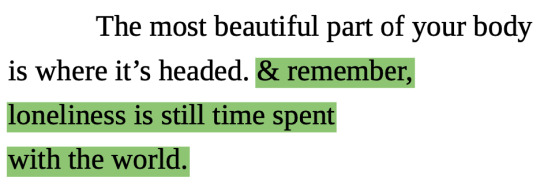
Ocean Vuong, from “Someday I’ll Love Ocean Vuong”, Night Sky with Exit Wounds
34K notes
·
View notes
Text
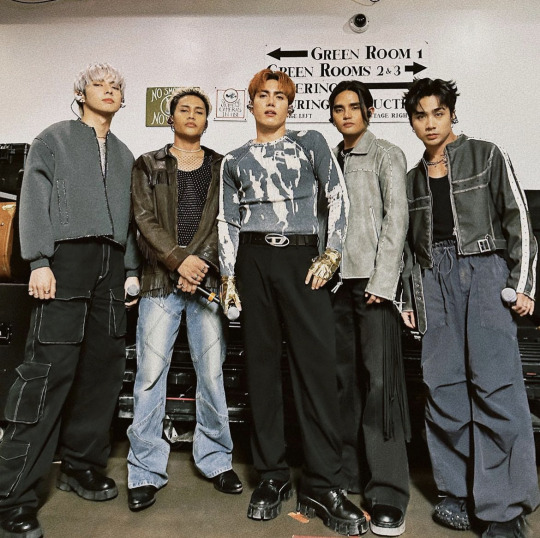
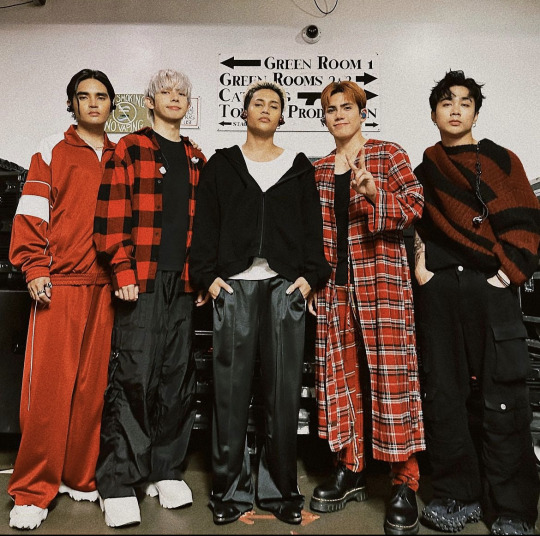
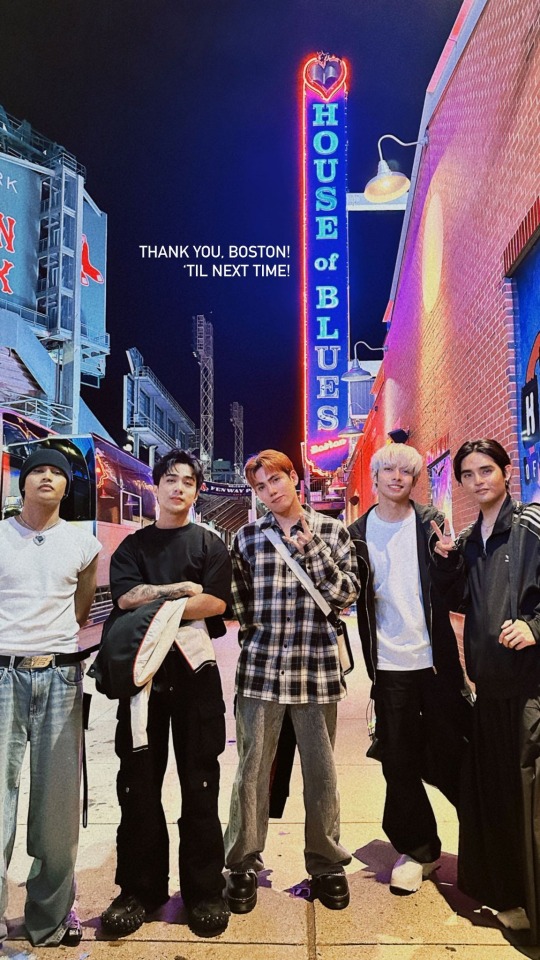
SB19 🫶🏻
18 notes
·
View notes
Text


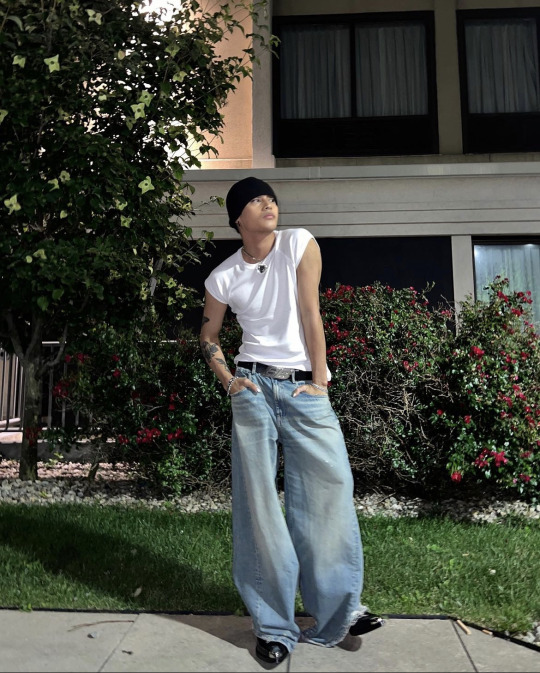
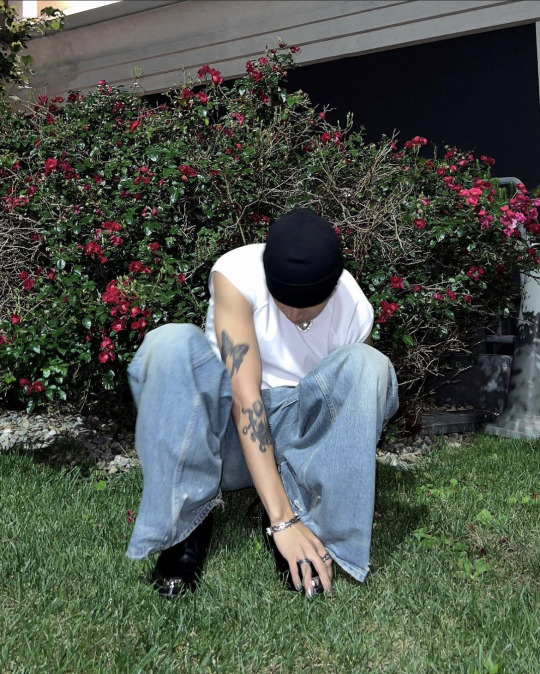

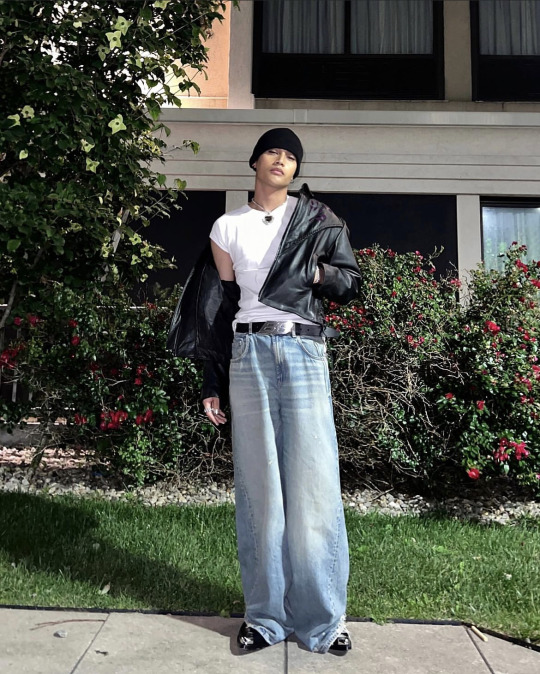
His name is Ken/Felip Jhon Suson a singer, rapper and dancer from a ppop (filipino) boy group called SB19.
I really love this guy so much 🫶🏻😍
ig/twt: @felipsuperior @officialsb19
1 note
·
View note
Text
ㅤㅤㅤㅤ꒰꒰ ୨୧ ꒱꒱ ₊ 𝆬 ♡ 𝚋𝚒𝚘𝚜 (𝙸𝙶) :

( ⊹ ᥣꪱttᥣᧉ ﹫𝗌𝗎꯭𝗇𝗈𝗈 ¡! .. )
ㅤ ꒰ ིྀ ㅋ ㅋㅤׄㅤ₊ ᵎᵎ ♡︎
ㅤㅤㅤ
ㅤ ꒰ ◌ ˚ ₊ ♡ 𝗆𝗒﹚ ✦
ㅤ⏜ 𝗍𝗎𝗅꤯𝗉𝗌 &॒ sana ׁ ִ ಎ
ㅤ
ㅤ◌ 𓈒 ׁ ⟡ !! ໒꒰ྀི ㅠ ㅠ ꒱ྀི১♡
ㅤㅤೀ 𓈒 ꒷ 𝗉͜rᧉ͜𝗍𝗍𝗒 (idol) ᵎᵎ ꒱
ㅤ ⊹ ꒰ ꒰ 𑄽୧ ꒱ ꒱ ♡ ⊹ ୭ 아기. . ⊹ ⭒ ˚ ཐིཋྀ ˚ ⭒ ⊹ ⁔ ˚◌ 𝟷𝟹 : 𝟷𝟹

︶⏝︶. ︶⏝︶. ︶⏝︶. ︶⏝︶. ︶⏝︶
— sunoo (enhypen), sana (twice).
8K notes
·
View notes
Text
username layout ideas <3
✿ : name ♡
ᥫ✦. name !
ꕊ na / me !
★ : name !
﹏ ˒ name ❜ ᵎᵎ
֙⋆ name 🩰
﹆ : na.me ໑ !
-----------------------------
like / reblog <3
follow me <3
----------------------------
5K notes
·
View notes

